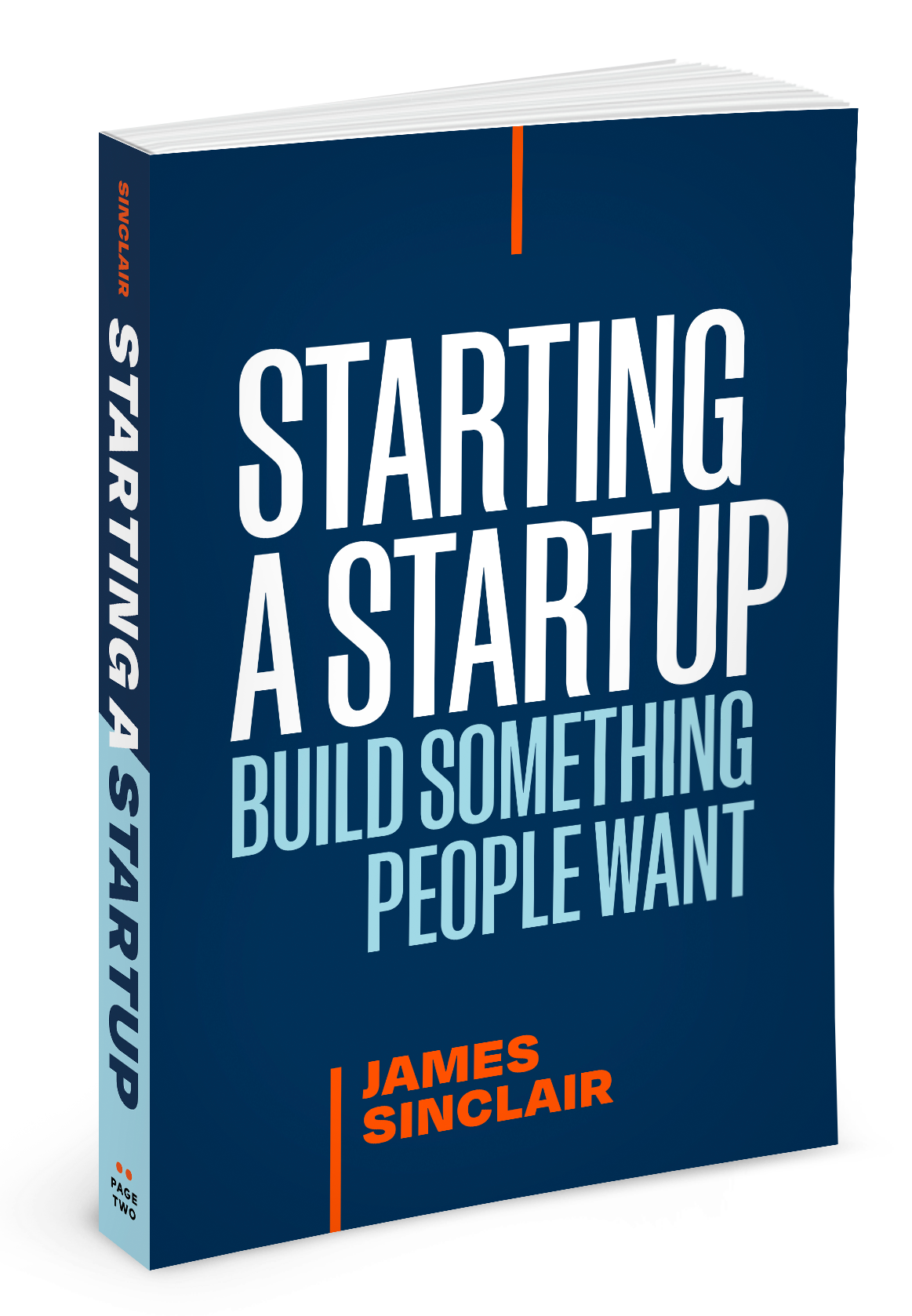
Transform YourStartUp Vision Into Reality
I am a trusted startup consultant and founder coach to first-time founders, technical builders, corporate execs, and academic leaders stepping into entrepreneurship. Seed to Series A.
Strategic guidance for ambitious founders. From concept to scale, helping founders navigate complexity and accelerate everything.
Trusted by founders from


New Release: Starting A StartUp
90% of startups fail because founders build products nobody wants.
Not you.
Starting A StartUp isn't theory. It's a battle-tested framework for founders who want results. Fastest team to learn, wins. Not the smartest. Not the richest. Just the team that executes faster than everyone else.
This book takes you from zero to paying customers without wasting time, money, or sanity. Real tactics. No fluff. No excuses.
Who I Work With
I work with founders as a startup coach, founder consultant, and trusted startup advisor—helping them move from idea to traction, with clarity, speed, and systems. From technical builders to venture-backed teams, I help startups scale without the fluff.
I work with founders at different stages and backgrounds. Each brings unique strengths and faces distinct challenges.
First-Time Founders
First-Time Founders
You've never done this before. That means you're not carrying bad habits. You're starting with clarity. Let's build something strong from day one.
Learn MoreTechnical Builders
Technical Builders
You're technical. You've shipped code. Now it's time to ship a business that scales.
Learn MoreCorporate Execs
Academic Founders
Academic Founders
You're coming out of research and into reality. We'll translate your work into a market-ready business.
Learn MorePracticing MDs
Practicing MDs
You've led in medicine. Now you're building something bigger. Let's shape the system around your insight.
Learn MoreVC Portfolio Companies
Bootstrapped Builders
Bootstrapped Builders
You're funding this yourself. Every bet matters. Let's make them count.
Learn MoreWhere Are You Right Now?
Every startup moves through predictable stages. Each stage has its own challenges, opportunities, and next moves.
Pre-Idea
You've been circling this for a while. Notes in your phone. Domain half-bought. Maybe even spoke to a dev or two. Sometimes, you're just here for a sanity check. Other times, because no matter how many times you put it down, the idea won't leave you alone.
Learn MoreMVP
You're building. It's ugly. It barely works. But it's real. You're showing it to people. Getting feedback. Maybe even charging. But it's all duct tape and dreams right now.
Learn MoreFirst Customer
Someone paid you. Now what? You're figuring out how to do it again. And again. And again. You're learning what works. What doesn't. What you need to change.
Learn MoreSome Traction
You have users. Revenue. Fans. But it's all duct tape. You're hiring. Growing. Learning. And trying to keep it all together while you figure out what's next.
Learn MoreEarly Scale
This might actually be a company. You're in rooms you used to dream about. You're Googling acronyms during board calls. You're building systems. Processes. Teams.
Learn MoreReady to Get Started?
Book your intro with a startup advisor who's helped 1500+ founders go faster.
Let's see if we're a good fit. One call. No commitment. Just clarity.
One Job on That Call:
We figure out your North Star.
Clarity on your ultimate destination and why it matters.
We sketch the broad steps to get there.
A high-level roadmap that makes sense for your situation.
Then we throw that map out the window.
And work out what you have to do right now to even have a shot.
Mapped with just the right amount of chaos.
I'm Not Your Mentor. I'm Your Multiplier.
You own the vision. I help you shape the system around it so it can scale, survive, and thrive.
I don't teach theory. I help you execute.
I don't give advice. I help you build momentum.
I don't sell frameworks. I help you find clarity in chaos.
I don't just talk strategy. I help you make it real.

James Sinclair
How This Starts
Simple. Direct. No games. We figure out if we should work together.
It starts with a call.
One session. No commitment. We spar, explore, sketch, and see if there's signal.
We see how we think together.
There's no economic intent. Nothing to sell. You can't hire me off one call, and I wouldn't let you. This is a working session to explore your context, pressure test ideas, and decide if we even want to keep going. It has to feel right, for both of us.
You walk away sharper.
Even if we never speak again, the goal is you leave clearer than you came in.
Your Coach: James Sinclair
James has a track record of success in innovation, entrepreneurship, and startup consulting. He has successfully coached founders in top accelerators such as Y Combinator, TechStars, and Capital Factory, as well as founders at major tech giants like Uber, Airbnb, Shopify, and Google.
With several exits of his own companies to industry leaders such as Boeing and Microsoft, James is highly regarded in the startup community as a founders founder.
"Crazy good at understanding and getting to value out the gate. Exactly who I need in my corner."

Should We Even Work Together?
This isn't for everyone. Here's how to know if we're a fit.
You shouldn't work with me if:
You can't carve out focused time to work on yourself and your company
You're looking for someone to "fix it for you"
You think this is about pitch decks or raising money, this is about building a business
You want a consultant to tell you what to do, not collaborate on what matters
You're not ready to confront uncomfortable truths or change your approach when needed
You're a good fit if:
You're serious about making this work.
You're looking for a partner who can push, challenge, and build alongside you.
You're not looking for another you, you want diversity of thought, dissent, and disagreement.
You're ready for the kind of clarity that comes from honest dialogue, fast decisions, and tested experience.
What We Actually Work On
Think of this as the 6 steps every founder navigates between idea and early traction. Each one matters. We work through all of them, together.
Founder Headspace
How to think, prioritize, and lead, especially when it's hard to know where to start.
Vision & Strategy
What are you building? Why does it matter? We find the thread that ties it all together.
Product & Delivery
What's the smallest thing you can ship that proves you're right? And how do you actually ship it?
Go-To-Market
How do we generate demand before the product is ready, and make sure there's a line of people at the door when it is?
Delivering Delight
How do you create early user moments that drive retention, referrals, and belief?
Scalable Something
Whether it's team, tech, or process, we start laying down what's repeatable before things break.
This Isn't Coaching. It's Co-Building.
You want to move faster. But right. Let's find out if we should build together.

